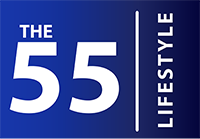I know, I know…“Do we look like we’re ready to retire?” It’s more than just a mantra here at The 55 Lifestyle, but it is something that men 50 and over have to consider once we clear that half-century milestone. And it isn’t only about the finances, this is a major change to your way of life! You must think through the new lifestyle, healthcare and the associated costs, along with the unique challenges each represent. This should be a welcome and expected period in our lives and the best way in preparing for retirement is to plan early. We’ve started our research and pulled out what look to be the top five (certainly not an exclusive list) and will expand on these topics as an ongoing series.
**Disclaimer – we are not advocating or offering any financial or medical advice through this blog. The information provided is for informational purposes only.**
-
Decide what your retirement will look like
Obviously, retiring isn’t something to tackle in one step. Planning and preparing for retirement requires a great deal of forethought and saving throughout the years. But the first thing to come to terms with is how do you see yourself in retirement and what will your lifestyle look like?
For example, is traveling after retirement your lifelong dream? If so, to what extent and do you foresee yourself spending extended time away from home? Then think about what that will mean for you in your planning. Will it make sense then to maintain a home or should you downsize and just have a “base camp” from which you jump off on your next adventure from?
If travel is not a priority, what do you want to do with the extra time? We found many stories in which retirees didn’t realize how much working occupied their life and were having difficulty filling the hours. How will you? A key fact we found and reflected in this great article from Psychology Today is to evaluate what you do in your life today and don’t take for granted you’ll automatically enjoy new pursuits like a new sport in retirement.
The one consistent piece of advice we found is even though you don’t have to have every minute planned, do enough to stay busy. Keep your mind and body engaged and don’t let a mundane routine set in. And key again is to think about this now!
-
Doing the financial check-ups
Once you have an idea on what you want to do in retirement, you need to think about how you will pay for it. Businesses use balance sheets to look at their financial health, (Assets = Liabilities + Owner Equity) and essentially you can do the same. Break this down into basic components: What do I own, what do I owe, and what do I earn and can set aside until your retirement date. Get an overall financial picture and shoot for 70% to 80% (numbers vary) of your annual pre-retirement income. Given the life expectancy of an American man being 79 years, (81 years for females) you could expect a range of 13 to 18 years at that income.
One source (MarketWatch) we found say that men reach their peak earning potential in their 50s and most pay raises at this point are cost of living. If you can forecast a little (there are several retirement calculators free to use) you should be able to get a usable figure and see where you stand. If you’re lacking, this may be the time to look into other passive income sources, such as property, investments or secondary income.
Don’t forget as you’re preparing for retirement to explore existing options in your 401K or company retirement programs if they’re available. Finally, log in to the Social Security Retirement Estimator and see what your benefits picture looks like and include that in your long term planning. Above all, financial advisers can be a great resource to tap and most companies and a lot of banks offer the service for free.
-
Addressing your healthcare and programs
For many Americans, healthcare is a complicated topic, and it doesn’t get any simpler when preparing for retirement. There are healthcare programs—such as Medicare and Medicaid—in place to help retirees, but you’ll want to make sure that you properly understand them so you’re always covered.
Just for our purposes—Medicare is a federal government that provides health insurance coverage if you are 65 years old or older or have a disability under 65 regardless of income. Medicaid is specific for coverage for low income earners. In this blog we’ll focus on Medicare but will write up both in a different blog. Check back soon!
As with your retirement financial plan, you need a good healthcare plan as well. What are your needs now? Do you have a medical condition you’ll take into retirement? Obviously, your health may change by the time you register at 65, but now is the time to talk with your doctor about what you can do in your 50s for better health in your 60s and beyond.
It’s important to understand the costs as Medicare pays for some, but not all, of your coverage and benefits change between the government programs (Part A, B, C and D), You don’t want to be surprised by a huge bill, especially if you end up in a hospital stay with heavy prescriptions. Supplemental programs are available, and we’ll review some of those in a future blog.
-
Skipping the extra drink
Trying to look and feel your best in your retirement age? Now is the time to skip that extra beer, whiskey or wine. And yes, we’re aware that’s not any fun, yet, as your body ages, excess alcohol contributes to a variety of health risks. Heart disease, diabetes, decreased metabolism, and belly fat are among the risks that can occur if you’re a heavy drinker.
Changing your diet might deviate from some of your favorite happy hour moments, but it can be worth it when you look and feel better for some of the best years to come with your friends and family. And remember—it’s not to say you can’t drink at all, just do it in moderation.
-
Rethink your exercise regimen
As you begin preparing for retirement, don’t forget that exercise must play an important part of your lifestyle. The good news is unless you’re specifically aiming for intense, high-impact cardio programs, you don’t need them to stay fit. The Office of Disease Prevention and Health Promotion ODHP (U.S. Department of Health and Human Services) publishes fantastic guidelines that you can download.
We’ve read through the 2nd Edition (118 pages) and to summarize adults need a minimum of 2.5 hours of moderate-intensity aerobic activity and just two days a week of strength training. Now personally, that’s low for me but as we age, we don’t need as much vigorous training to maintain fitness levels as we did in our 30s or 40s. There are many exercises that don’t require the jarring impact of running and heavy weightlifting, our favorite is swimming as it incorporates cardio and strength in one exercise. (Check out our blog on different types of cardio here.)
And regarding your workouts, remember some basics:
- Keep recovery times in your planning. Your body needs time to heal in between workouts.
- Feed your body nutritious foods with recommended amounts of protein. Lean meats, healthy fats, and vegetables are especially important as you attempt to build muscle.
- And don’t forget to sleep! Get at least the recommended 7—8 hours everyday to avoid sleep-deprivation and stress.
Final thoughts
Preparing for retirement begins now, before you need it. There’s a lot to be excited about when the time comes, playing with grand kids, traveling the world, learning a new hobby, or go after that business you always wanted to start. Decide what you want your lifestyle to look like early on and plan for it. Know how to manage your healthcare and start preventative measures early to ensure that you can keep your body healthy.
We thank you for stopping by and hope that you found this information useful! As we continue our series on work and retirement, is there anything you need us to cover? Please reach out to Glen directly or leave a comment in this blog. Thank you!
The 55 Lifestyle is a participant in the Amazon Services LLC Associates Program, an affiliate advertising program designed to provide a means for sites to earn advertising fees by advertising and linking to Amazon.com.









My aunt Camilla would like to retire from her job soon, which is why she’s thinking of attending retirement education courses so she’ll have an idea what to do with her money. Well, thank you for sharing here that she should break down her assets and liabilities first. It’s also great that you suggested here the advantage of applying for Medicare and Medicaid.
Thanks for reaching out and letting us know we’ve been able to help! We’re looking to expand our retirement planning categories in 2021.